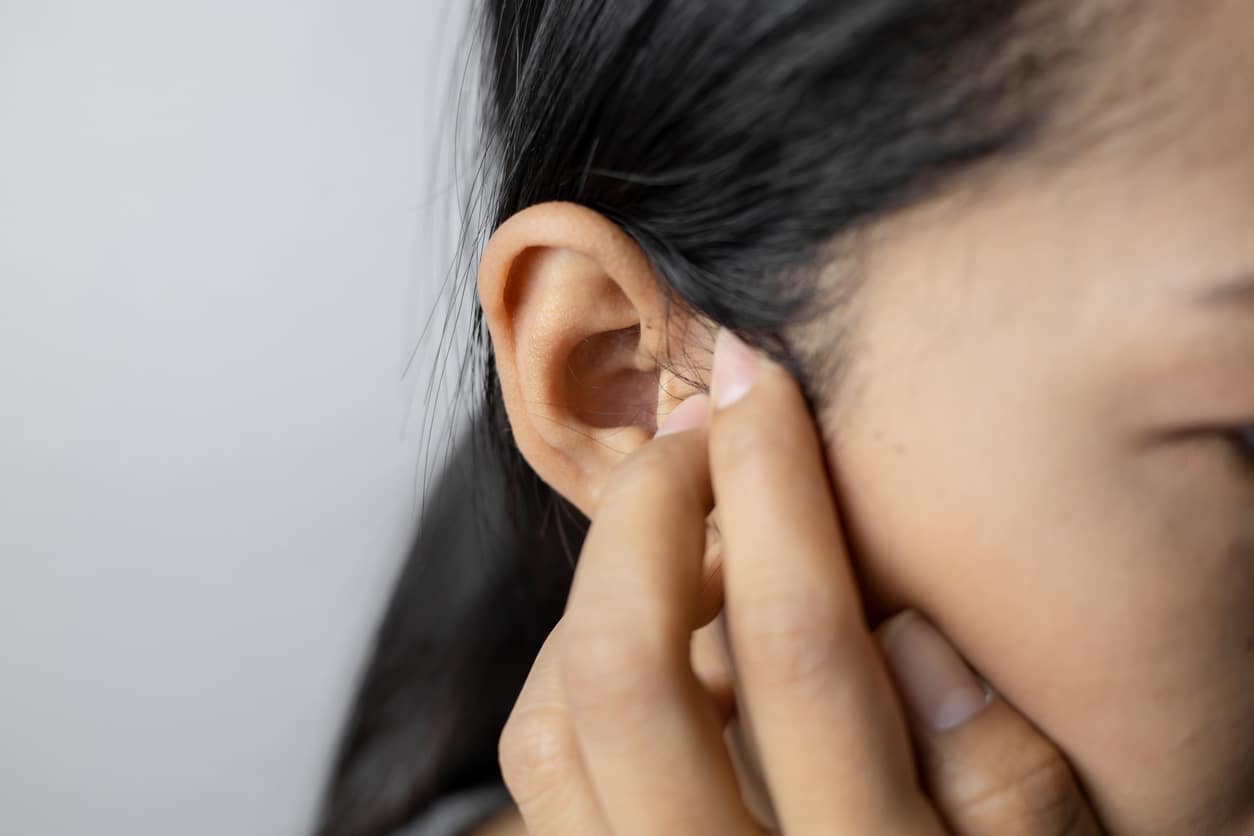You may be familiar with tinnitus, a widespread condition characterized by ringing or other constant noise in the ear, but this is a very broad category. The noise, intensity and frequency vary, creating a few different subtypes of tinnitus. One of the most common subtypes of tinnitus is somatic tinnitus. It’s estimated that as much as 65% of all tinnitus cases are somatic tinnitus. So let’s discuss somatic tinnitus: what it is, what causes it and how to manage it.

What Is Somatic Tinnitus?
Somatic tinnitus, also called somatosensory tinnitus, is the presence of tinnitus sounds (ringing, roaring, buzzing, humming or clicking) that are triggered by or connected to movement and body position. If the sound changes in some way when you move or touch a part of your body, it’s probably somatic tinnitus. Some examples include:
- Moving your eyes in a certain direction
- Rotating your head or neck muscles
- Tensing or opening your jaw
- Moving your fingers
- Touching your hands, fingers or face
If you do any action like the one above and your tinnitus starts or intensifies, that’s somatic tinnitus. The pressure points are usually in the head, neck or jaw, but limbs and fingers may also be affected.
What Causes Somatic Tinnitus?
Tinnitus is not a condition itself, but rather a symptom of other health conditions, and somatic tinnitus is no exception. Since this subtype of tinnitus is so connected to the body, usually the causes of somatic tinnitus have something to do with muscles, nerves and blood flow. Some common causes are:
- Muscle tension
- Jaw issues
- Dental disorders
- Head and neck injuries
Can Somatic Tinnitus Be Cured?
There is currently no cure for tinnitus. Since tinnitus varies wildly from person to person, and because tinnitus is a symptom and not a condition, there is no one-size-fits-all cure for tinnitus.
To address somatic tinnitus, you need to address the condition causing it. If your somatic tinnitus is related to muscle tension or jaw issues, look for muscle relaxation techniques for the affected area. If you have a dental disorder affecting somatic tinnitus, get that addressed with a dentist or surgeon.
How Can I Manage My Somatic Tinnitus Symptoms?
While there is no cure for tinnitus, there are treatments available that make it less of an issue. Tinnitus retraining therapy trains the brain to downplay or outright ignore the tinnitus sounds; hearing aids have proven to be effective at masking tinnitus sounds. North Alabama ENT Associates is available to help with your tinnitus management. Call today for more information or to make an appointment.